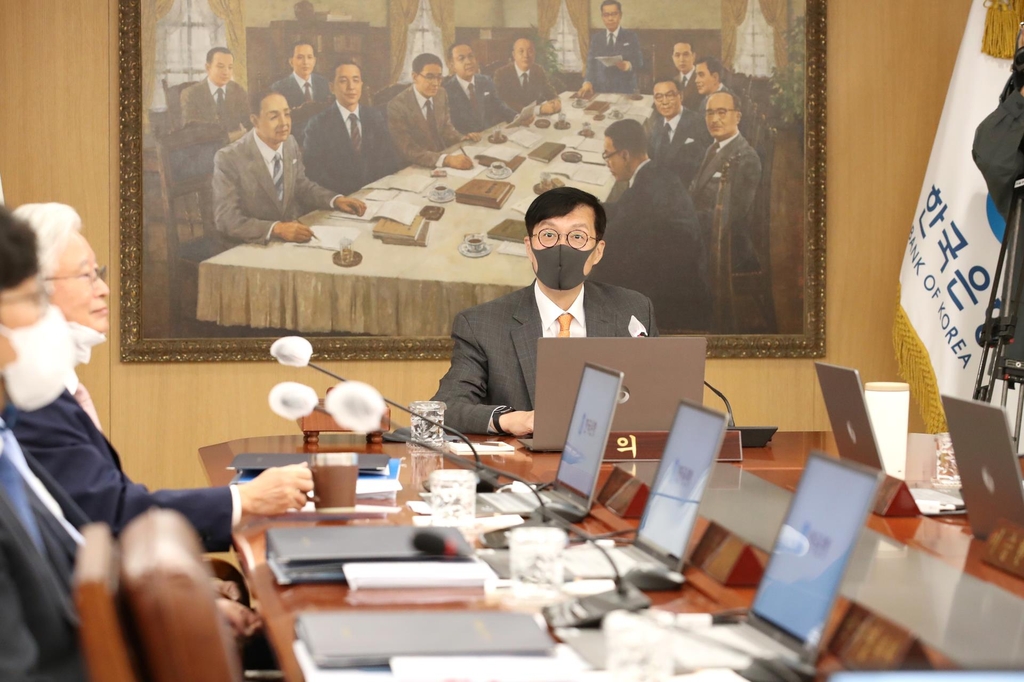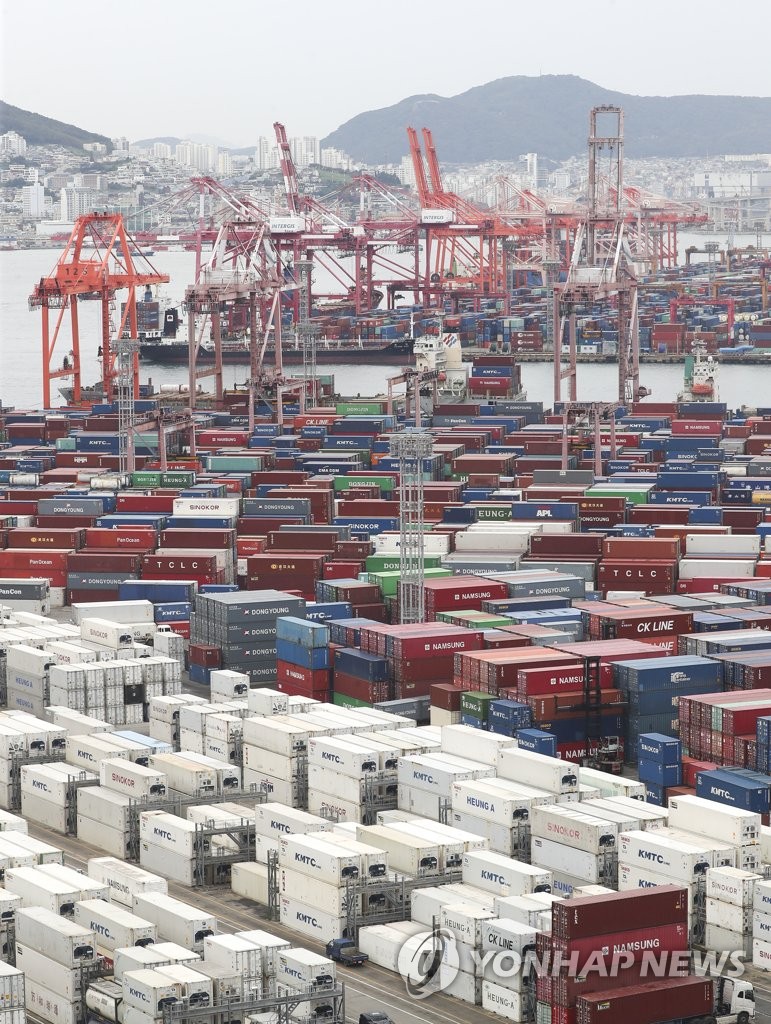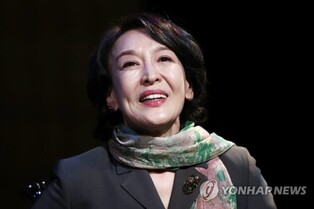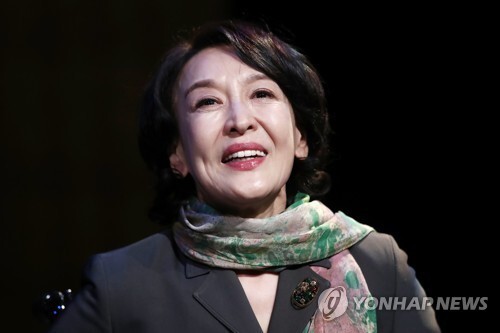 |
| ▲ BOK Gov. Rhee Chang-yong speaks during a rate-setting meeting on Oct. 12, 2022, in this photo provided by his office. The seven-member monetary policy board voted to raise the policy rate by 50 basis points to 3 percent. (PHOTO NOT FOR SALE) (Yonhap) |
 |
| ▲ Inbound containers are stacked up at Gamman Quay in Busan, in this file photo taken Sept. 1, 2022. South Korea posted a trade deficit of US$9.47 billion in August, the largest amount to date, on soaring global energy prices, with its exports and imports coming in at $56.67 billion and $66.15 billion, respectively. (Yonhap) |
(LEAD) BOK-rate decision
(LEAD) BOK delivers another big-step rate hike to rein in inflation
(ATTN: ADDS more info throughout, byline; CHANGES photos)
By Koh Byung-joon
SEOUL, Oct. 12 (Yonhap) -- South Korea's central bank delivered another big-step rate hike Wednesday as it is striving to bring inflation under control despite worries that it could excessively slow down economic growth.
The monetary policy board of the Bank of Korea (BOK) voted to raise the benchmark seven-day repo rate from 2.5 percent to 3 percent at a rate-setting meeting earlier in the day, according to the central bank. It is the first time in about 10 years that the rate has risen to the 3 percent range.
Wednesday's rate increase marked the eighth rate hike -- by a combined 2.5 percentage points -- since August last year when the BOK begun raising the borrowing cost that had stayed at a record low to shore up the pandemic-hit economy.
It also represented the fifth straight increase and marked the second big-step rise since the first-ever 50 basis-point hike in July. A basis point is one hundredth of a percentage point.
The BOK had been widely expected to increase the benchmark rate as it places top priority on taming inflation that has been running high amid expensive energy and commodity products that the country mostly imports.
The country's consumer prices, a key gauge of inflation, rose 5.6 percent on-year in September. The increase was slightly down from a 5.7 percent jump in August but remained high and could rise again anytime depending on the oil and energy price trajectory.
In a parliamentary audit session Friday, BOK Gov. Rhee Chang-yong echoed the view, saying inflation is expected to peak in October but remain high "for a considerable period of time." He expected inflation to stay over 5 percent at least until the end of the first quarter of next year.
A widening rate difference between South Korea and the United States had also augmented the case for the BOK's sharp rate increase this week.
The Fed is expected to deliver another giant-step rate hike of 75 basis points next month after rate increases of the same magnitude in its past three meetings.
The Fed's rate currently stands at a range between 3 percent and 3.25 percent from a near zero, which is higher than the rate in South Korea, a rare reversal in the borrowing cost.
Without a sharp rate hike here, the rate differential could have been widened further, which would prompt capital outflows from local financial markets in pursuit of higher returns.
Policymakers worry that capital outflows could accelerate the South Korean currency's slide against the U.S. dollar and compound Seoul's efforts to rein in inflation as a weak currency makes imports more expensive. The won has fallen around 17 percent against the dollar so far this year.
Experts say the BOK will likely deliver another rate hike in November, the last meeting of the year, in line with ongoing efforts to tamp down inflation and the Fed's aggressive monetary tightening, though they are divided on how far the rate will move up.
Fears are rising that such steep rate increases will result in a deepening financial burden on indebted households, raising the possibility of those without deep pockets defaulting on their borrowing and undercutting their spending.
According to a BOK analysis, a 0.25 percentage-point rate increase translates into a rise of 3.3 trillion won (US$2.3 billion) in interest payments for household debt. That means that households' interest payments have grown by about 33 trillion won over the past 14 months.
South Korea's economy has been facing growing uncertainty, including slowing exports growth and a mounting trade deficit that could be worsened should prolonged monetary tightening in major countries tip the global economy into a recession.
Earlier, the International Monetary Fund revised downward its global growth outlook to 2.7 percent for next year from 2.9 percent predicted in July. It also lowered the 2023 growth outlook for South Korea to 2 percent from 2.1 percent.
(END)
(C) Yonhap News Agency. All Rights Reserved

























![[가요소식] TXT](/news/data/20251220/yna1065624915960696_833_h2.jpg)







